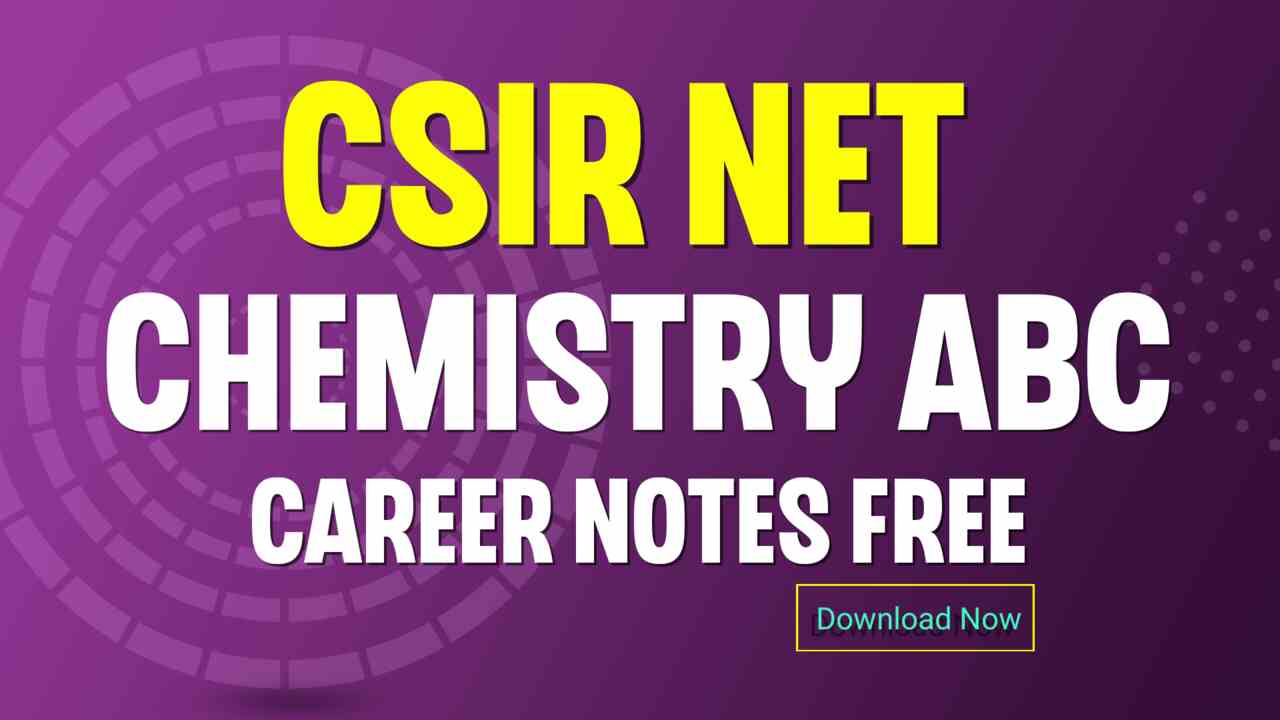Chemistry NET Exam Tips.
Chemistry is a fascinating field of study that plays a crucial role in various industries such as pharmaceuticals, cosmetics, and agriculture. If you’re interested in pursuing a career in chemistry, then you might consider taking the National Eligibility Test (NET) in chemistry.
The NET exam is a national-level exam that is conducted to determine the eligibility of candidates for the post of Assistant Professor or Junior Research Fellowship in Indian universities and colleges. In this blog post, we’ll cover everything you need to know about the NET exam in chemistry, including tips for success and essential study materials.
Understanding the NET Exam in Chemistry
The NET exam in chemistry consists of two papers, both of which are conducted online. Paper I is a general aptitude test that is common for all candidates, while Paper II is subject-specific and covers topics in chemistry. The exam is conducted for a total of 300 marks, with 100 marks for Paper I and 200 marks for Paper II.
Paper I consists of 50 questions, each carrying two marks, and candidates have 1 hour to complete the test. The questions in Paper I cover general aptitude topics such as teaching and research aptitude, logical reasoning, reading comprehension, and data interpretation.
Paper II consists of 100 questions, each carrying two marks, and candidates have 2 hours to complete the test. The questions in Paper II cover topics in chemistry such as physical chemistry, organic chemistry, inorganic chemistry, analytical chemistry, and biochemistry.
Tips for Success in the NET Exam in Chemistry
- Create a Study Plan: A well-designed study plan is crucial to succeed in the NET exam. Allocate specific times for studying each topic and stick to the schedule. Include time for revision and solving practice questions.
- Focus on the Fundamentals: Chemistry is a subject that requires a solid understanding of its fundamental concepts. Focus on building a strong foundation by studying the basics of each topic.
- Solve Previous Years’ Question Papers: Solving previous years’ question papers is an excellent way to understand the exam pattern and gain insights into the types of questions asked. It also helps to identify the areas that require more attention.
- Refer to Standard Textbooks: Standard textbooks such as Physical Chemistry by P.W. Atkins, Organic Chemistry by Morrison and Boyd, and Inorganic Chemistry by J.D. Lee are recommended for studying chemistry. These books provide a detailed explanation of concepts and numerous practice questions.
- Practice Time Management: Time management is critical in the NET exam, as there are a limited time and a vast syllabus to cover. Practice solving questions within the stipulated time to improve speed and accuracy.
Essential Study Materials for the NET Exam in Chemistry
- Standard Textbooks: As mentioned earlier, standard textbooks are essential for studying chemistry. Some other recommended textbooks are Biochemistry by Voet and Voet, Analytical Chemistry by Skoog and West, and Physical Chemistry by Ira N. Levine.
- Reference Books: Reference books such as Organic Chemistry by Solomons and Fryhle, Inorganic Chemistry by Shriver and Atkins, and Advanced Organic Chemistry by Carey and Sundberg are excellent resources for advanced study.
- Online Resources: There are several online resources available for studying chemistry, such as Khan Academy, ChemistryABC.com, and ChemSpider. These resources offer videos, lectures, and practice questions to help you prepare for the exam.
Conclusion
The NET exam in chemistry is a challenging but rewarding exam that opens up several career opportunities in the field of chemistry. With a well-designed study plan, focus on the fundamentals, and practice solving questions, you can ace the exam. Remember to refer to standard textbooks, solve previous years’ question papers, and manage your time efficiently. Best of luck!

